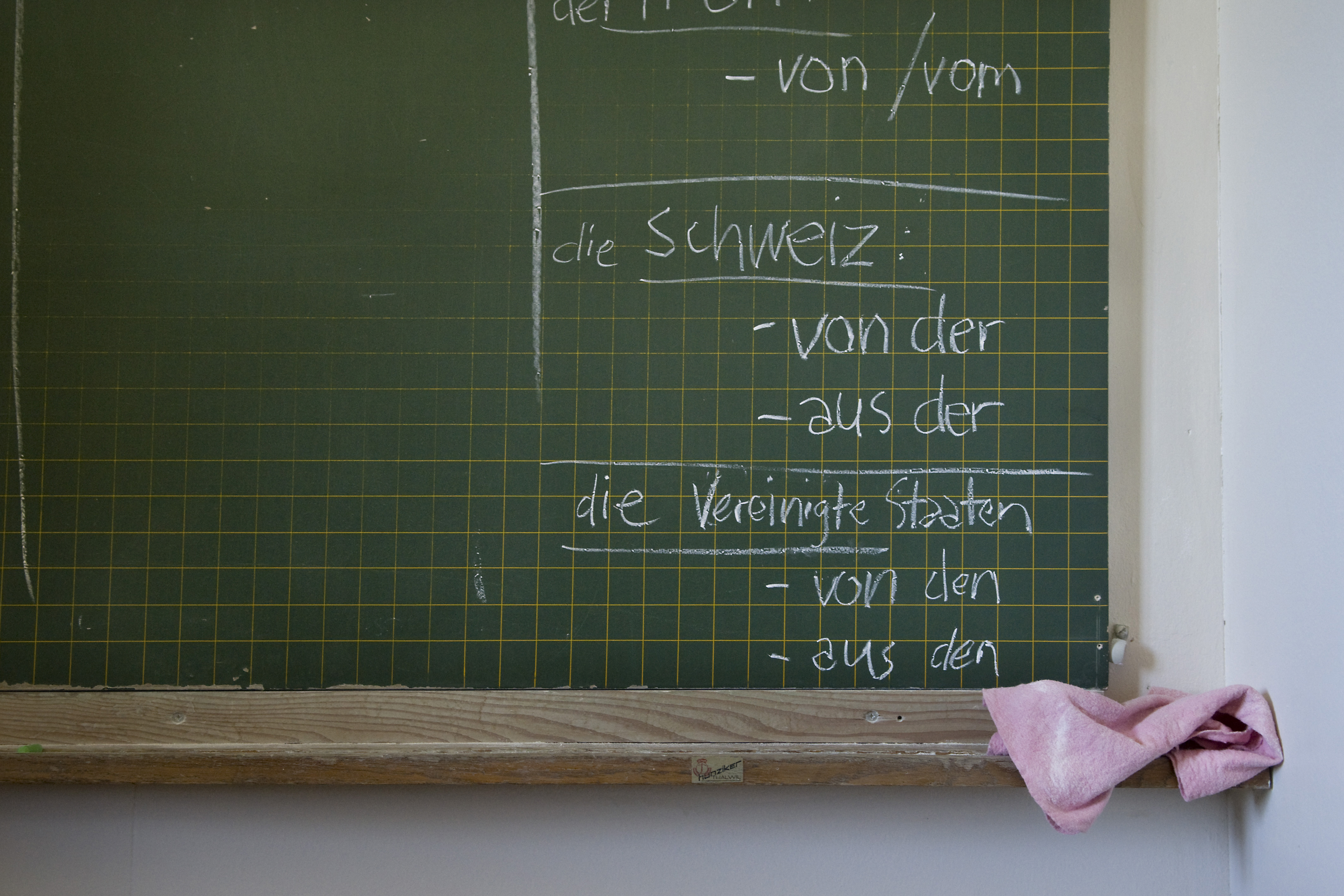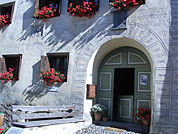Romansh speakers rebel against standard language

A long-standing controversy about the standardisation of Romansh has broken out again with surprising virulence in canton Graubünden, where the language is spoken.
It has to do with the rival claims of the standard language and the five “idioms” or regional dialects. These are more than just dialects, because they are standardised written forms of the language which go back several centuries.
The standard language – Romansh Grischun (RG) – is being gradually introduced as a means of acquiring literacy in primary schools and seems likely to displace the idioms.
But opponents of RG as the language of instruction have now formed a lobby group called Pro Idioms.
Alexi Decurtins, an eminent Romansh lexicographer, delivered a fighting speech to the founding meeting of the group in the Surselva region in February. “Our idioms are cultivated languages open to every modern development. Their potential is superior to that of any artificial language,” he declared.
Pro Idioms was founded in the Engadine region late last year, then spread to Surselva. The association has a website, which of course is in two different idioms.
Meanwhile, many people who were initially enthusiastic about RG now have their doubts about the wisdom of making it the language of literacy in schools from day one, instead of introducing it at secondary level.
Even local politicians who voted for legislation paving the way for RG as the language of instruction are now having misgivings.
“Bastard” language
Romansh Grischun was introduced in 1982 by the Romansh League, the organisation that represents and coordinates the interests of the language and its speakers.
At that time RG was condemned by traditionalists as a “bastard language” which should not be imposed on speakers. It has remained controversial, to say the least.
In the intervening years, Romansh radio and TV (RTR) and the daily newspaper La Quotidiana have made use of RG alongside the traditional idioms. RG has also been adopted by the cantonal and federal governments as an official standard language for communicating with Romansh speakers.
The cantonal government clearly welcomed RG and saw it is an opportunity to save money, considering the cost of producing not only official forms and announcements, but also schoolbooks (for which it is responsible), in five different versions of Romansh.
As part of a package of legislation reducing government expenditure, the cantonal parliament agreed in 2003 to publish schoolbooks and other instructional materials in RG only.
This meant that RG would inevitably become the language for acquiring literacy in Romansh schools.
Pros and cons
But under law, the local communes (towns and villages) have the authority to decide what is to be the language of instruction in their schools. Some communes, lauded by the government as “pioneers”, have adopted RG and implemented it, but many others seem to want to retain their idioms as the language of literacy.
If a new generation of young Romanshes from the Surselva to the Engadine learn to read and write in RG, they will be able to communicate with one another in a unified way for the first time in history.
On the other hand, they may no longer be able to read the literature written by previous generations (including current works of literature), and the idioms in their written form will quite likely disappear.
The leading spokesmen for RG like Bernard Cathomas, former head of the Romansh League and RTR, have been repeating their usual arguments emphasising the “innovative” and “dynamic” character of the new standard and of those who embrace it.
Clà Riatsch, professor of Romansh at Zurich University, and a defender of linguistic particularism in his native Engadine, satirises this kind of talk as “styrofoam”.
To many grassroots Romansh speakers, RG is really a “styrofoam” language with no emotional appeal – not the “language of the heart”, a term which speakers often use to refer to Romansh.
Seeking compromise
The “idiomists” as they are now called, see the advancement of RG in schools as a conspiracy by the cantonal government and the Romansh League to flout democracy.
The government’s new minister of education, Martin Jäger, and the Romansh League say they are now seeking a compromise – though how much they are willing to concede to the idiomists is a moot point.
“Romansh speakers who understand the political situation in this canton know themselves that the demand to create school materials in all the idioms again is politically just not realistic,” said Jäger in a recent interview with La Quotidiana.
On the positive side, the current raucous debate shows that Romansh speakers, often accused of apathy by language activists, do care passionately about their language and its future.
Martin Mathiuet, director of adult education for the Surselva region, observes wryly: “the main point now is that so many people are so committed to Romansh and getting so involved. We haven’t seen that before.”
Romansh is one of the four official languages of Switzerland. It is a Romance language, related to Italian and French.
It is spoken only in canton Graubünden by about 70,000 speakers (census data vary). There is also a large diaspora in Zurich and other Swiss cities.
Romansh has been a written language since the time of the Reformation. From the beginning, Bible translators and religious apologists sought to write in the local “idiom”, resulting in the establishment of five different written standard forms, each with its own literature.
Romansh writers have always written in their own idiom, which means that they write, not for the entire Romansh population, but for people in a particular region. Thus the classic novelist Clà Biert wrote in the Vallader idiom of the lower Engadine, and more recently Leo Tuor, a popular novelist in the Surselva, and a caustic opponent of the new standard language, writes in the Sursilvan idiom.
For each of the idioms there are authoritative dictionaries and grammars. Since its appearance in 1982, RG has been provided with a dictionary (print and online) as well, and a few books have been published in it. It is used in many articles in the Romansh daily newspaper, La Quotidiana, and on news broadcasts from RTR, the Romansh radio and television station.
Experience in European countries has shown that even spelling reform, let alone re-standardisation, finds little consensus.
The Greeks gave up their accent system in 1982 so as to simplify their spelling, but controversy remains, and some authors and publishers still use the old system.
When the Germans had a rather minor spelling reform in 1996, controversy also erupted, with prominent authors and publishers refusing to conform. The new spelling still hasn’t won universal acceptance.

In compliance with the JTI standards
More: SWI swissinfo.ch certified by the Journalism Trust Initiative













You can find an overview of ongoing debates with our journalists here . Please join us!
If you want to start a conversation about a topic raised in this article or want to report factual errors, email us at english@swissinfo.ch.